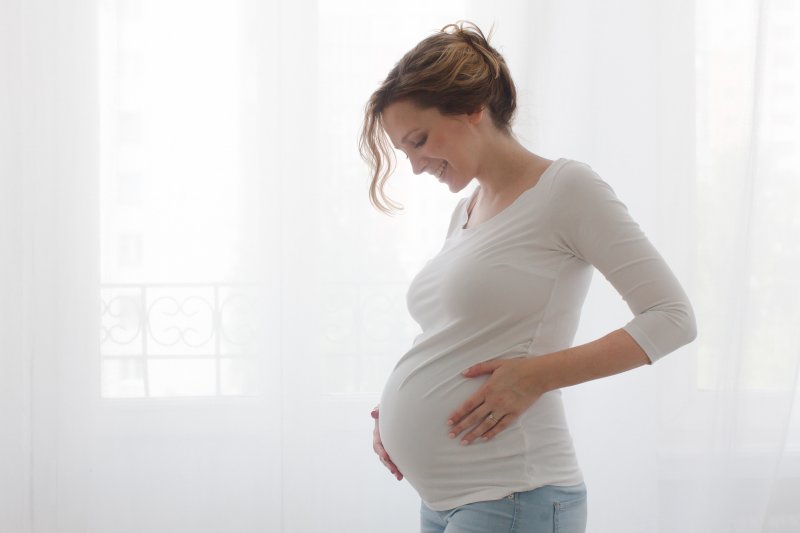
Pregnancy affects the human body in many ways, and it can result in difficulty sleeping in some cases. A pregnant woman may snore softly or loudly or experience sudden disruptions of her sleep due to breathing difficulties, and both of these are common symptoms of sleep apnea. But can pregnancy actually be the cause of sleep apnea? Here’s a brief guide to the relationship between pregnancy and sleep apnea as well as a few tips for getting some much-needed shuteye.
How Can Pregnancy Affect the Way I Sleep?
Many women find that it becomes progressively harder to sleep during their pregnancies, and this issue is considered normal. However, some will develop an unfortunate condition known as obstructive sleep apnea that can repeatedly disrupt their sleep throughout the night by impeding normal breathing. While sufferers of sleep apnea will resume breathing normally upon waking up, the condition can reduce the oxygen levels in the expectant mother’s blood, which may increase her unborn baby’s risk of preterm birth.
How Does Obstructive Sleep Apnea Disrupt My Rest?
Sleep apnea is the most severe breathing-related sleep disorder, and it is characterized by the upper airway becoming restricted while the patient slumbers. This is usually the result of the relaxing muscles and other tissues weighing heavily on the windpipe, constricting it to the point where normal breathing is interrupted. This condition can awaken a sleeper more than a hundred times in a single night, and it is more common in overweight people as well as pregnant women.
Pregnant women may be more likely to experience symptoms of sleep apnea due to hormonal changes and increased body mass, which can cause the tissues in the throat to put more pressure on the windpipe. Sleep apnea during pregnancy is associated with greater risks of pre-eclampsia, gestational diabetes, and severe complications. It’s important to talk to your sleep dentist if you suspect that you are experiencing this condition.
How Can I Have My Sleep Apnea Treated?
Luckily, a qualified sleep dentist is equipped to effectively treat sleep apnea so patients can get the rest they need. They may recommend addressing the issue with an oral appliance, a CPAP machine, or another treatment. However, you may also be able to help reduce your sleep apnea symptoms at home by:
- Sleeping on your side to reduce pressure on your trachea
- Making smart eating decisions
- Working out regularly
- Using a humidifier in your bedroom
- Taking an over-the-counter decongestant that is safe for use during pregnancy
- Applying adhesive breathing strips to help keep your airway open
Sleep apnea can be quite troublesome for someone preparing for motherhood. Talking with a sleep dentist and adopting a few smart habits can help you reduce or eliminate your symptoms so you can get the high-quality sleep you need for a safe and healthy pregnancy.
About the Author
Dr. Keane Fedosky earned his dental degree from Baylor College of Dentistry and completed his residency at the Dallas VA Hospital. He also serves as a Diplomate of the American Board of Dental Sleep Medicine and a member of the American Academy of Dental Sleep Medicine and the American Academy of Craniofacial Pain. His office in Plano offers sleep apnea treatments and TMJ therapy. If you suspect that you have sleep apnea, contact his office online or dial (972) 753-3737.
